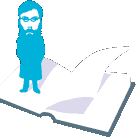NOTE:
Thank
you letters-training programs 受訓後去函致謝 belong
to correspondence regarding arrangements for a training program
and/or guest worker period. Correspondence regarding arrangements
for a training program and/or guest worker period often includes
the following:
Proposing the training course or guest worker period
Proposing the technical training period should be stated with confidence
in the organization's ability to meet your organizational or individual
needs. Such examples are:
"Could you provide a short training course at UCL, on the current
developments and applications of MS as used in Polymer research?"
"Would you allow me to serve as a guest worker in your laboratory?"
"I would like to serve as a guest worker in your laboratory for
six to eight months."
A description of your organization's current work and research (as
related to the training program)
Providing as much information about your own personal background
or your organization's requirements or needs will allow the reader
to determine whether he or she can help you.
"I have a master's degree in Materials Science and Engineering and
have received special training in thin film deposition photolithography
and chemical etching. I am currently designing a process that would
integrates these technologies for the development of a pressure
sensor that is based on a metal thin strain gauge."
"The Pressure/Vacuum Measurement Laboratory at the Center for Measurement
Standards is planning to develop the primary pressure standard (PPS)
of the mercury manometer so as to promote and strengthen our laboratory's
measurement capabilities."
A clear statement of how the training course can benefit your organization
A clear statement of what you expect to gain from the training course
will avoid further confusion.
"I also agree that the introduction of Molecular Simulation at UCL
would provide a more thorough understanding of polymer morphology-structure
property relationship and the directions for research activity."
"Your laboratory, one of the leaders in this field of research,
could provide me with a marvelous opportunity to learn about sensor
manufacturing.
An itinerary or set of topics that will be covered during the training
program
Stating your expectations of the training itinerary may prevent
later disappointment.
"I hope that through this short training program we can determine
the systems and research topics that need to be focused on. The
following topics may be a helpful guide for you when deciding the
contents of this short training course. Of course, you should feel
free to ammend or expand on any of these topics."
"We hope to enhance our technical knowledge of PPS, particularly
with respect to temperature measurement and control, anti-vibration,
and pressure control."
Additional instruction can be found in the accompanying Power Point presentation.

![]()